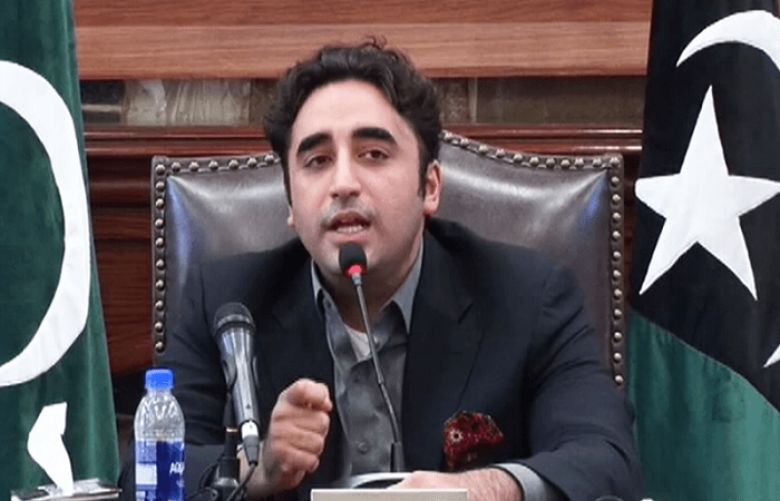Foreign Minister Bilawal Bhutto Zardari has hinted that Pakistan Tehreek-e-Insaf (PTI) chief Imran Khan may not have a future in politics if he refuses to follow "the democratic path".
The foreign minister is presently in Germany as he participates in the Munich Security Conference.
In an interview with CNBC, the minister said "Pakistan has had a history that is not hidden from anyone. We have had more than half the time of our country's history under direct military rule and various transitions in between; at the moment I believe Pakistan is in a period of transition and absolutely it could go either way."
"It could mean a success and a strengthening of the democratic forces or it could mean a success and a strengthening of unconstitutional undemocratic forces," he added.
Bilawal went on to note that he deemed two events in the past year as significant for Pakistan's future: Imran's ouster and former army chief General (retd) Qamar Javed Bajwa's pledge of neutrality.
The vote of no confidence that took the PTI chief out of office, Bilwal described it as an "institutional and democratic milestone".
"You might not like the results of it [the vote of no confidence] if you are from his party," he said, "but in the course of Pakistan's history, that is a fundamental achievement that a military man has not come in and pulled out the prime minister or a court has not ordered for them to go. The democratic process has been followed."
Secondly, he said that the fact that "the former chief of army staff stood up and gave a speech in his uniform where he accepted that in the past the military used to intervene in politics and that that is not good, neither for the institution and nor for the country and they would like to transition away from that" was a noteworthy development.
He maintained that this "public" admission by the military that it wished to move from a "controversial role to a constitutional role" should be encouraged by all those in the country who support democracy.
However, he claimed that the "problem" Pakistan faces is that the "opposition is saying: no, you [the army] need to have a role, come back have a role and help us get back into power".
The minister stressed that such interventions by the army neither serve the interests of the military nor the nation.
When asked specifically if he believed Imran still had a future in Pakistan's politics, Bilawal said that while he "never says never in politics" but "encouraged" his political rival nonetheless to "pursue the democratic path".
"This has been my message to Mr Khan ever since he was prime minister or when he was leaving office and up until this day," he said adding that Imran would "most certainly have a future in politics if he strives to pursue the democratic path".
Urging the former premier to "change his protest from 'come intervene in politics' to 'everybody committing to play a constitutional role in politics'", Bilawal warned that Imran would be lost to history like many before him.
"Undemocratic forces have had their time in Pakistan's political history," he added, "but it has never been long-lived."







